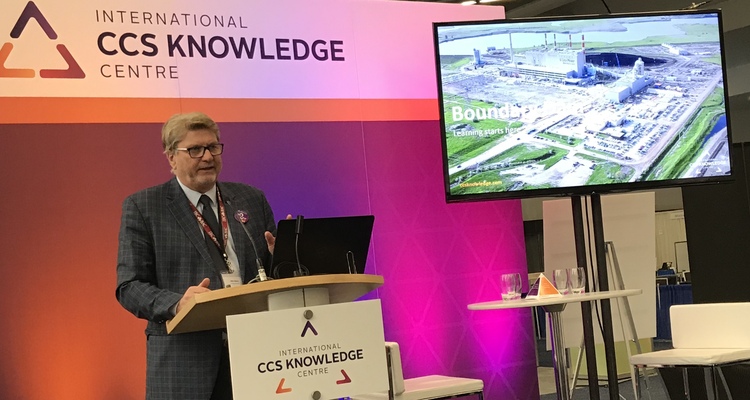Vancouver, March 14-16, 2018 - With 10,000 people in attendance at North America 's largest exhibition and conference on clean technology and innovation, the CCS industry is there on mass and claiming big audiences.
The International CCS Knowledge Centre, mandated to promote and support large scale deployment of CCS to reduce carbon emission globally, has brought together experts and innovators across the CCS and CCUS eco-system. The longstanding eco-conference, known as GLOBE Forum, is currently underway in Vancouver, BC.
In addition to the 20 CCUS exhibitors, the International CCS Knowledge Centre is hosting a full day dedicated to the discussions on the viability and necessity of CCS to tackle urgent climate issues. These panel discussions at CCUS Day are addressing the salient questions for CCUS such as its’ role in supporting energy transition and the phase out of coal; financing of CCUS and the role of carbon pricing; and how to de-risk CCUS for it to be accepted an accessible for those countries and regions looking to substantially reduce their greenhouse gas emissions.
“The high traffic from various sectors and regions along with focused interest in CCS at the GLOBE Forum is testament to the growing recognition that CCS is a definitive and accessible tool to mitigate a shared global problem in climate change,” says Mike Monea, President & CEO, International CCS Knowledge Centre.
CCS has Relevance right now.
In addition to the acknowledgement by the United Nations International Panel on Climate Change for the need of large scale CCS to meet the climate targets articulated in both the Kyoto and Paris Agreements, there are a handful of other factors, underscoring CCS relevance right now:
- 2Mt - This week the world’s first commercial scale integrated capture facility on a coal fired power plant - SaskPower’s Boundary Dam 3 Carbon Capture Facility - surpassed 2-million tonnes of captured CO2 – and is operating at 99% reliability. This indicates the significance and rapid integration of lessons learned – and these new understandings can be made available to the world through the International CCS Knowledge Centre.
- FUTURE ACT – The new United States FUTURE Act, also known as 45Q creates incentives for innovation in CCS while also reducing carbon emissions.
- CCS and renewables can and should co-exist – as significant advancements in new technologies take time, CCS offers a transitional option for GHG reduction that is well demonstrated, reliable, and ready to deploy. CCS is part of the Paris puzzle.
---
updated, April 8, 2018 - link to photos at Globe Forum.

 News
News